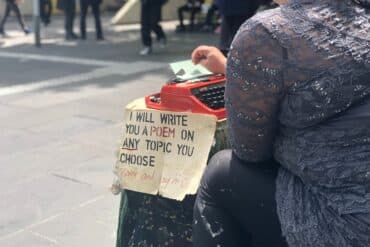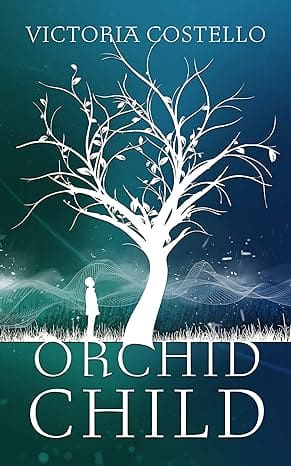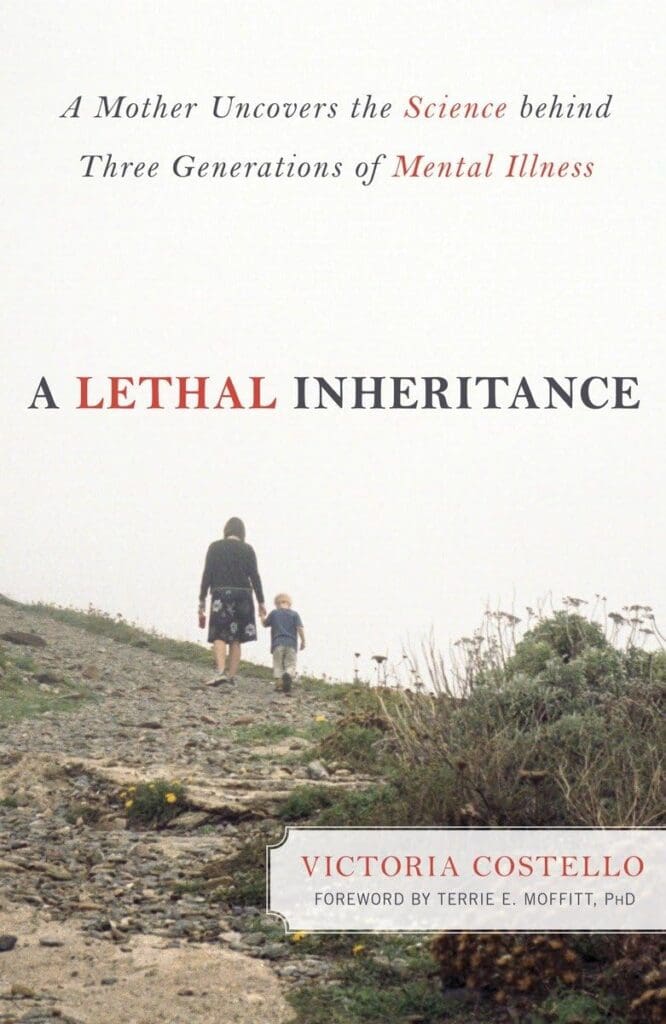Mainstream Publishing Has a God Problem: Writing Truth on the Margins
Author’s Memo
My first novel, Orchid Child, is a work of autobiographical fiction. Its characters and plot are based on several broken people, myself included, and a chain of tragic events I’d previously written about in a memoir published a decade ago. In this essay, I use my personal publishing experience to assess the resistance to spirituality in today’s literary culture. I provide context by referencing theory and practice in narrative medicine and current literary criticism around trauma plots.
The characters populating my debut novel, Orchid Child (Between the Lines Publishing/2023) are based on the real lives of several broken people, myself included, and a tragic chain of events I previously depicted in a memoir titled, A Lethal Inheritance (Prometheus Books/2012). Another similarity of these books is the minefield I encountered on my journey to getting them published in a literary culture whose gatekeepers are uncomfortable with certain story elements I tend to favor; namely, intergenerational trauma, spirituality, and sentimentality—aka happy endings.
My placement of intergenerational trauma on this list of publishing red flags might come as a surprise to some, given the glut of such titles over the past decade. I include it to highlight a recent backlash among prominent critics. Perhaps the most influential of these is Parul Seghal who, in her New Yorker essay, “The Case Against the Trauma Plot,” casts intergenerational trauma as a tired trope—inherently self-indulgent, even narcissistic. From my reading of Seghal her main beef with such narratives is the way in which their authors skimp on originality and rely on trauma as a “totality of characterization.” For remedies, Seghal points to literary works that offer a comic perspective on personal tragedy, or those that highlight collective social activism as a response to individual trauma.
‘…based on the real lives of several broken people, myself included, and a tragic chain of events I previously depicted in a memoir titled, A Lethal Inheritance (Prometheus Books/2012).
I have no beef with either of these trauma plot change ups. But I wonder if the tedium for critics, and possibly readers, isn’t so much a result of their exposure to repetitive pain as it is to the endless recycling of suffering with no hope of healing? By healing I don’t mean sheer survival or securing justice for the victims and/or vengeance against the perpetrators. I mean a person or family becoming whole again. So, why is the depiction of genuine healing from trauma so rare? I suggest one part of the answer is an aversion to positive representations of spirituality in the fictional lives of traumatized characters.
This is not a conversation that we can advance through generalities. To move beyond the binary, I suggest we look at the field of narrative medicine, specifically Arthur Frank’s categorization of “illness narratives.” In The Wounded Storyteller Frank identifies three plots typically employed by patients or doctors when they describe the course of an illness—here I use illness as a placeholder for various forms of trauma. The most common of these plots involves the patient in a search for restitution; they seek the end of sickness and a return to ‘normalcy.’
When normal isn’t attainable, illness plots often descend into chaos; the patient finds no cure or answers and their story remains a tragedy. The third and rarest plot can have a patient pass through the first two plots types but ultimately has the hero begin a quest, with a resolution coming from their re-definition of health and happiness to something completely different.
‘Perhaps the most influential of these is Parul Seghal who, in her New Yorker essay, “The Case Against the Trauma Plot,” casts intergenerational trauma as a tired trope—inherently self-indulgent, even narcissistic.
Of course, any hero worth his salt must pass through the shadow of the valley of death before he conquers his enemy, be it an illness or war or a single human perpetrator. But how does that happen, exactly? In my literary output, a pivotal ally has been the presence of a higher being—not always a Christian God, indeed my novel Orchid Child centers a pagan religion—nevertheless, spirituality functions for me, both as a writer and a human being, as a helpful agent of change. My first experience of resistance to this story element came as I approached the publishing finish line for my memoir, A Lethal Inheritance.
Spring, 2011. My nerves were shot as I waited for my editor at Prometheus Books to return her edits on my manuscript. For the first couple of weeks I’d hung onto a modicum of confidence. After all, she’d already read and liked the four chapters I’d given her at the conference pitch session where we seemed to hit it off and she expressed enthusiasm for my approach; that is, weaving personal experience with leading edge scientific research to show how mental illness travels through multiple generations, with the youngest family members often wholly unaware of the suffering that came before them.
Four months after our meeting, my agent struck a deal with her, and I took six more months getting the manuscript in as good shape as I could on my own. Hitting send had been an enormous relief. But as my time of waiting dragged on, I imagined opening the returned doc file to find endless cross-outs, my book nowhere to be found. Worse, I’d get a single sentence email saying Sorry, this isn’t salvageable, contract cancelled.
‘…isn’t so much a result of their exposure to repetitive pain as it is to the endless recycling of suffering with no hope of healing?
When the edited manuscript finally arrived, my elation swelled as I cruised through twelve chapters and found only minimal copy editing. My hopes were dashed when I reached chapter thirteen and encountered the very sea of red ink I’d dreaded. And I don’t mean pages; she deleted it in its entirety. Next to the crossed-out chapter heading, her lone comment in the margin read: This is not scientifically supported.
My stomach cramped. I dropped my head into my hands. Hello worst fear.
So, what was so bad these pages to merit their wholesale deletion? Chapter thirteen contained an account of a day-long Family Constellation therapy session I credited with putting me and my sons on the path to healing the intergenerational trauma I’d spent the previous two-hundred odd pages describing in excruciating detail. Never mind that I included endnotes to a handful of peer-reviewed studies demonstrating the effectiveness of this therapeutic approach. The underlying problem, I believe, was that Constellation Therapy uses dramatic re-enactments that some of its practitioners describe as tapping a collective consciousness wherein the subject’s ancestors are invoked and speak through the participants in a group therapy experience. My faux paus? The introduction of a spiritual component to what was otherwise a personal story in which all other assertions of cause and effect were safely couched in validated research.
‘By healing I don’t mean sheer survival or securing justice for the victims and/or vengeance against the perpetrators. I mean a person or family becoming whole again.
I was crushed but admittedly not surprised. Prometheus Books had published numerous flamboyantly atheist scientists, including Richard Dawkins, to the point where bashing religion had become part their brand. Having spent six years as a science writer and blog editor for the research publisher, PLOS, where I ran a blog network interpreting the latest research for lay audiences, I’d seen the same complaints raised by peer reviewers when the author of a research paper dared to include a subjective observation. And I’d watched all hell break loose when a scientist used a phrase that inferred anything like intelligent design.
Although self-policing for unfounded religiosity has its value in science, the extreme version that now exists robs science communication of its humanity, along with potentially valuable human insights simply because reviewers conclude that researchers haven’t supplied a sufficient material basis for any given observation. In this climate, a researcher’s inclusion of intuition or emotion is cause for suspicion and rejection of their findings.
From my experience, the equivalent disapproval of spirituality runs rampant in today’s literary culture, both fiction and nonfiction. Unless it’s a full-blown Christian narrative, for which there are separate publishers, or a fantasy with its own made-up world that invites readers to leave the known, material world behind.
After one unsuccessful phone call with my editor at Prometheus in which I argued for the scientific validity of Family Constellation Therapy, I let her publish my memoir—A Lethal Inheritance, A Mother Uncovers the Science Behind Three Generations of Mental Illness—without the offending final chapter. Those fifteen pages hibernated on my hard drive for a decade, until they became the seed for Orchid Child.
‘So, why is the depiction of genuine healing from trauma so rare? I suggest one part of the answer is an aversion to positive representations of spirituality in the fictional lives of traumatized characters.
Not only is this novel based on the travails of my Irish immigrant ancestors and the three generations that followed, but it also uses a real, joint Irish American study that investigated the historically high rate of schizophrenia in one rural county in West Ireland. It was only after my son was diagnosed with schizophrenia at the age of seventeen that I came upon this study. The discovery came while I attempted to fill in the blank slate of my Irish ancestors who, it turns out, emigrated from this same county.
The fictional character of Teague, a teenage boy I characterize as an orchid child, that is someone born with an unlucky genetic hand who taps his mental and perceptual differences—his neurodiversity—to come back at life with a five card straight, is a composite of my son and other young boys and men I encountered first as a science writer, then as a mother and a mental health advocate.
My protagonist in the novel, Kate, is my alter ego—that is, if I had been a neuroscientist instead of a mother confronting a terrifying diagnosis in her child. In real life, it was only after dealing with my son’s diagnosis and treatment, then my own untreated clinical depression, that I began writing the memoir. I wrote it to make other parents aware that not only is healing possible, but that with awareness and early intervention can stop the chain of suffering in a family.
‘Not only is this novel based on the travails of my Irish immigrant ancestors and the three generations that followed, but it also uses a real, joint Irish American study that investigated the historically high rate of schizophrenia in one rural county in West Ireland.
I was heartened to receive many messages from mothers who told me that A Lethal Inheritance led them down the road towards hope and recovery. But it was only midway through writing my first draft of Orchid Child, that I realized I’d turned the difference of opinion I’d had ten years earlier with my editor at Prometheus into the central conflict faced by my fictional neuroscientist. In that sense, the chapter that editor banished from my memoir became the seed for Orchid Child.
As the novel begins, Kate’s rising star in neuroscience has crashed in a sex scandal—with her fear of intimacy and sex addiction representing her manifestation of the intergenerational trauma she unknowingly carries. Unemployed, divorced, and childless, her family pressures to take responsibility for her voice-hearing nephew, Teague, who talks to trees and stones but rarely people. Determined to salvage her career, Kate agrees to conduct the study in West Ireland, which townsfolk rebuffs.
‘The discovery came while I attempted to fill in the blank slate of my Irish ancestors who, it turns out, emigrated from this same county.
When a local chief Druid—a character based on a real-life leader of a Druid grove who I met in Ireland—identifies Teague’s odd perceptions as the gift of second sight, a bewildered Kate is thrust on a trail of madness, magic, and armed rebellion leading to her own grandparents who, she discovers were banished as traitors from the same town. Kate’s investigations force a confrontation with the chief Druid, endangering Teague’s life and putting her in even stranger territory, where ancient Celtic mysticism intersects with 21st century neurodiversity. The conflict for Kate then becomes a choice to accept the limits of science and the power of her own ancestral ties. Only by so doing, can she heal herself and allow Teague to come of age on his own terms, and help the community deal with its difficult legacy of intergenerational trauma.
Does this sound spiritual and sentimental? I plead guilty on both counts. Of course, throw in mental illness as a manifestation of intergenerational trauma and I’ve created a trifecta of red flags for squeamish editors or critics.
So how does or should a hero exit the shadow of the valley of death? I, for one, have plenty of room for novels that feature God—however an author chooses to define him or her—as an ally on the way to a character’s healing and happiness. My bet is that there are plenty of readers who feel the same way.
Credits
Featured Image by Amit Lahav for Unsplash
Learn More
New to autoethnography? Visit What Is Autoethnography? How Can I Learn More? to learn about autoethnographic writing and expressive arts. Interested in contributing? Then, view our editorial board’s What Do Editors Look for When Reviewing Evocative Autoethnographic Work?. Accordingly, check out our Submissions page. View Our Team in order to learn about our editorial board. Please see our Work with Us page to learn about volunteering at The AutoEthnographer. Visit Scholarships to learn about our annual student scholarship competition.
Victoria Costello is an Emmy Award-winning documentary filmmaker, a science journalist, and the author of six nonfiction books, including the memoir, A LETHAL INHERITANCE: A MOTHER UNCOVERS THE SCIENCE BEHIND THREE GENERATIONS OF MENTAL ILLNESS (Prometheus Books/2012). Her debut novel, ORCHID CHILD, released by Between the Lines Publishing/Liminal Books, won the 2023 American Book Fest 'Best Book' prizes for contemporary and cross genre fiction. Reflecting her own evolution as a writer, Costello teaches the online course, When Memoir Becomes Autofiction, through WritingWorkshops.com. See more of her work at her website: victoriacostelloauthor.com.












